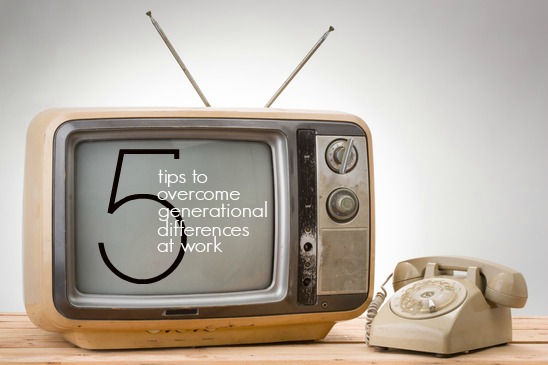In 1945 following World War II, economists, businesses, and policymakers began using a new unit of measurement to study demographics: the labeled generation. The Baby Boomers—those born between 1946-1964—were the first generation to adopt a widely accepted label. They achieved their generational label due to the spike in birth rates following the war.
Generations (typically a 15-20 year span) are formed by significant events (world wars, the moon landing, terrorist attacks, etc.) or advances in society (the Internet, technology, etc.) during the moldable years of an age group.
It’s important to note that generational spans are getting shorter because of increased level of exposure to significant events thanks to the Internet and our hyper-connected world.
Why do generations matter? 52% of workers say they’re least likely to get along with someone from another generation.
An individual’s age is one of the most common predictors of differences in attitudes and behaviors. Generational differences lead to disengagement in the workplace which can lead to poor communication, decreased productivity, leadership miscues, and more.
Related Read: 4 Common Pitfalls to Avoid When Engaging a Multi-Generational Workforce
5 Tips to Overcome Generational Differences at Work
1. Awareness and appreciation
Before bridging the generational gap, one must be aware of how generations are formed and then they must appreciate the differences that exist across generations due to the different time period that the generation came of age.
Make it a priority to consider the viewpoint of other generations when interacting and working across generations.
2. Be respectful
It was Ralph Waldo Emerson who said, “Every person I meet is my superior in some way, and in that I learn from them.” We can learn something from everyone. The key is to be open to learning from anyone, no matter their age. You will build a stronger connection across generations if you approach the individual with your hat in your hand.
This posture of respect is also likely to open others up to explore how they can learn from you.
Related Read: Narrow the Generational Gap by Understanding Each Generations Unique Perspective of Work
3. Find common ground
Common interests are the foundation for strong relationships. Establishing common ground allows for a deeper connection to be forged. Leadership expert, John C. Maxwell was spot on when he said, “It’s difficult to find common ground when all you're focused on is yourself.” Focus on others and strive to find common ground.
Keep in mind that beyond generations, we are all humans with the same needs and aspirations. We all want to be fairly compensated, to achieve a healthy work/life balance, and the opportunity to fulfill our potential. Leverage these similarities to find common ground.
4. Slay your assumptions
It’s easy to assume how Millennials want to be led, how Generation X prefers to collaborate, or how Baby Boomers want to communicate. Don’t let your assumptions blind you to reality, instead ask how different generations prefer to be led, collaborate, or communicate in the workplace. Then adapt your approach to best connect with that generation.
Related Read: 3 Uncomfortable Truths of a Multi-Generational Workforce and How to Solve Them
5. Pursue cross-generational interactions
The best way to continue learning about other generations and what they value and how they view life is to rub shoulders with them. Explore ways at work or volunteering or through an association to begin interacting with different generations.
In conclusion, all generations bring value to the table through their unique perspective and experiences. Finding ways to leverage their uniqueness will be a 21st-century competitive advantage.
Question: How do you overcome generational differences?
Consider Ryan Jenkins to be your next Millennial/Generation Y or Generation Z keynote speaker by clicking here...
![]()






